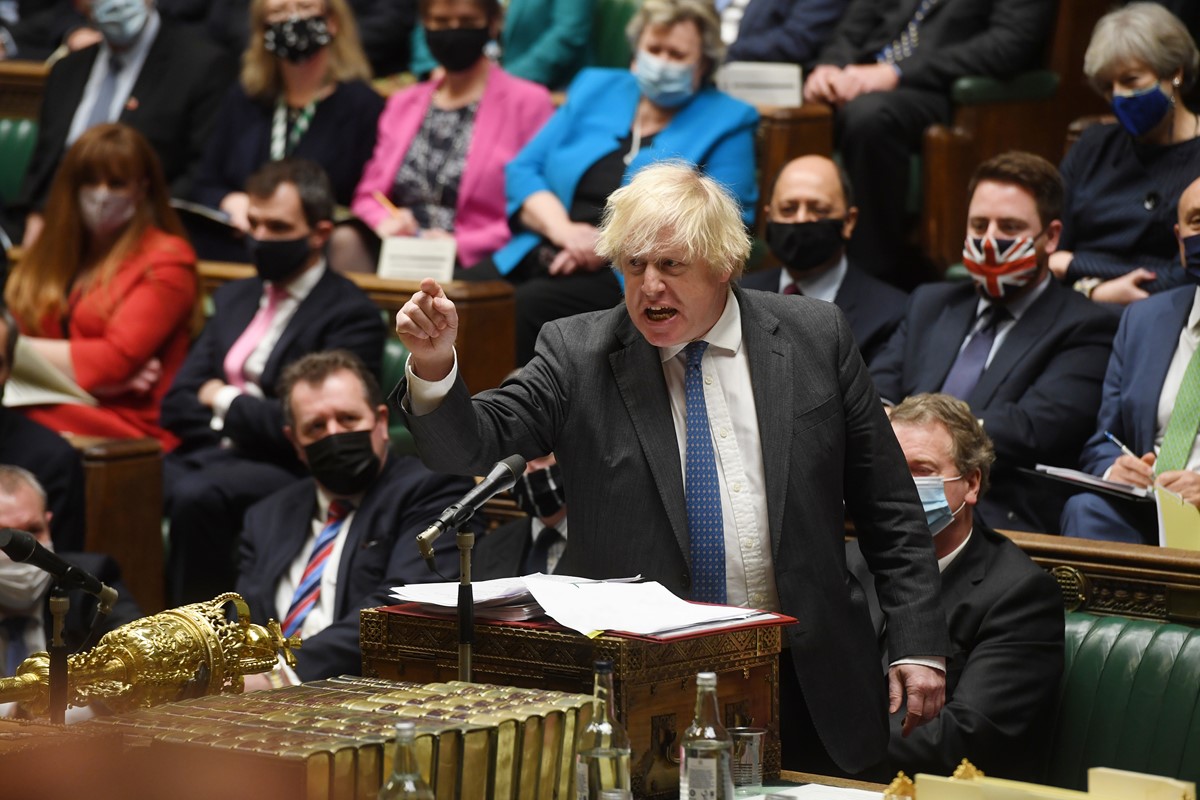Audiences with the Queen are rightly closely guarded affairs, so we don’t know how many Prime Ministers have had to offer The Palace an apology. But we do know Downing Street’s apology last week certainly wasn’t the first.

Boris Johnson is after-all only the latest of the Queen’s 14 Prime Ministers, something that speaks to a wider truth – Prime Minister’s come and go.
Away from the gossip about Graham Brady’s inbox, saving the “big dog” or operation “red meat”, the long-term impact of partygate will instead be felt most by the public institutions being sucked into the scandal.
Clearly the civil service is one of these – facing existential reputational threats on two fronts.
Firstly, it is now abundantly clear that there was a culture of workplace drinking during lockdown in Downing Street. For the public, many of whom endured extraordinary sacrifices during the pandemic, this appears as a classic example of “one rule for us, another for them”. Even before party-gate, our polling already showed that 62 per cent of the public feel looked down on by civil servants – that number will have undoubtedly grown in recent weeks.
Many will argue tainting the whole civil service is unfair, after-all the biggest gatherings seem to have numbered around 40 out of a civil service of close to 500,000 people. Having been both a civil servant and special adviser, I’ve seen first-hand the incredible, often thankless, work many civil servants do – and during the pandemic we saw a civil service that was more Tesla than Rolls Royce in delivering programmes like furlough and the vaccine roll-out.
But those efforts will bring little comfort to the hurt felt by families who followed the rules and didn’t get the chance to say goodbye to their loved ones – while Downing Street officials wheeled suitcases of wine through Whitehall.
What happens next cannot be solely about the political future of one man, but rebuilding trust and accountability in public life
The second risk to the civil service comes from the report itself. Sue Gray, despite being scrupulously fair-minded, finds herself (and the civil service by extension) damned if she does, damned if she doesn’t.
Go too hard on the government and we get the extraordinary situation where a civil servant has brought down a Prime Minister. It’s not hard to imagine (given Dom Cumming’s previous pledge to bring a ‘hard rain on the civil service’) that there would be long-term reprisals for defenestrating the PM. But go too soft or lay the blame on officials rather than politicians, and it looks like another case of the elite looking after itself, letting off the man in charge and ignoring what appears obvious in plain sight.
The civil service isn’t the only institution in the firing line. The Metropolitan Police is already plumbing the depths of public trust after the catastrophic failings around Stephen Port, Wayne Couzens and the subsequent heavy-handed policing of the Sarah Everard vigil to name but a few.
Their repeated refusal to investigate the allegations of parties, despite having issued ordinary Londoners with over £1 million in fines for breaking covid rules, is only serving to raise questions about the Met’s impartiality, further damaging public confidence and Londoner’s safety in the process.
And the tentacles of partygate don’t stop there. As last week showed, even the integrity of the Union itself is being dragged into this affair. It’s not hard to see how fury at antics in Westminster increase the attraction of Scottish independence – not least given the inexplicable decision of Jacob Rees Mogg to label the leader of the Scottish Conservatives (and Leader of the Opposition in the Scottish Parliament) a “lightweight”.
The likely long-term impact of party-gate, then, will not be about whether the Prime Minister goes now, in May or in 10 years, but rather another major erosion of public trust in our institutions. Seventy-seven per cent of Britons now believe “our system is rigged”, that’s bad in and of itself, because we need people to follow government guidance, to have confidence in the police, and to want to be part of our country.
But it’s also bad in another way, we know that when trust in our national institutions falls, people start to look outside of the mainstream for alternatives – populists who promise to clear the Augean stables, tear down the system, tear up the rule book, and take “the people’s side”. For that reason, once the Gray report is published, what happens next cannot be solely about the political future of one man, but instead the start of a nation-wide conversation about rebuilding trust and accountability in public life and showing that our institutions can work for all of us.
Luke Tryl is UK Director of More in Common.
First published: Politics Home, 18th January 2022